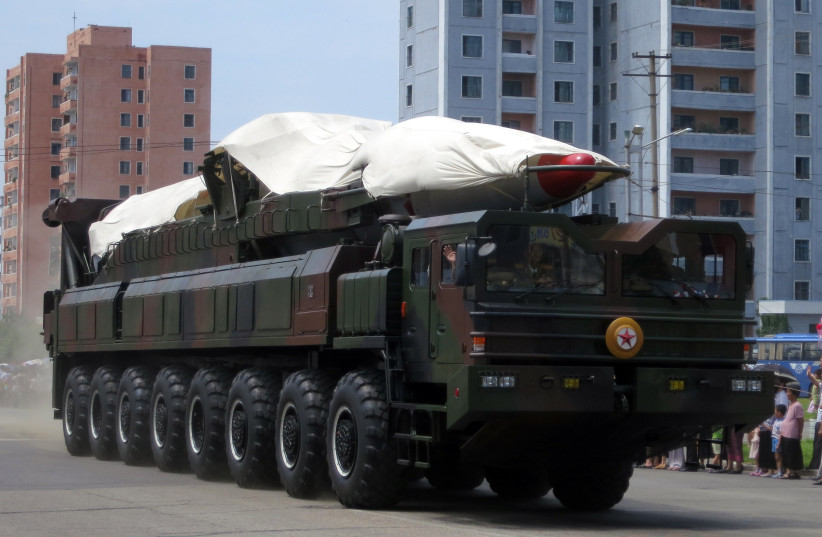Russia and North Korea continue to carry out missile tests, including a North Korean test with two short-range ballistic missiles and a Russian test of an anti-ship missile. These tests are symbolic saber-rattling by two countries both seeking to challenge the US and its partners. The potential consequences extend not only into Asia but also to the Middle East.
Iran, which has developed ballistic missiles for years, is often involved in these types of tests. It also provides Russia with armed drones and is expected to look for a way to aid Iran’s military programs in the future. Simultaneously, North Korea has been linked to Iran’s missile programs in the past: A 2021 UN report indicated that the two resumed missile cooperation.
South Korea’s military said that North Korea fired two short-range ballistic missiles on Monday: “Our military detected two short-range ballistic missiles fired from around Junghwa area in North Hwanghae province from 07:47 am (2247 GMT) towards the East Sea,” South Korea’s Joint Chiefs of Staff (JCS) said.
At the same time, Russia said it had test-fired an anti-ship missile in the Sea of Japan: “In the waters of the Sea of Japan, missile ships of the Pacific Fleet fired Moskit cruise missiles at a mock enemy sea target,” the Russian defense ministry stated. “The target, located at a distance of about 100 km. (62.14 miles), was successfully hit by a direct hit from two Moskit cruise missiles.” The Moskit missile is also called the SS-N-22.
What could the simultaneous missiles mean?
Although there is no direct line drawn that can say for certain that Russia and North Korea coordinated these tests, the fact that they occurred in the same region and in proximity to one another and that both of them affect US partners such as Japan and South Korea, points to an increased pattern by North Korea and Russia to project their strength their missile tests.

As well, both are involved in nuclear threats to their neighbors. Russia has been talking up nuclear threats by claiming it may station tactical nuclear weapons in Belarus. On March 19 according to CBS, “North Korea described its latest ballistic missile launch as a simulated nuclear attack on South Korea as leader Kim Jong Un called for his nuclear forces to sharpen their war readiness in the face of his rival’s expanding military exercises with the United States.”
These kinds of missile and nuclear threats are directly linked to Iran’s behavior in the Middle East. Iran as well uses nuclear threats to try to get concessions from others and it uses missiles to threaten the region.
With Iran’s recent decision to patch up relations with Saudi Arabia via a deal brokered by China, it’s plausible it may soon be ramping up its nuclear and missile programs. It will likely get a seal of approval from countries like North Korea and Russia, who are using the same kind of missile-nuclear tests and blackmail to their benefit.
